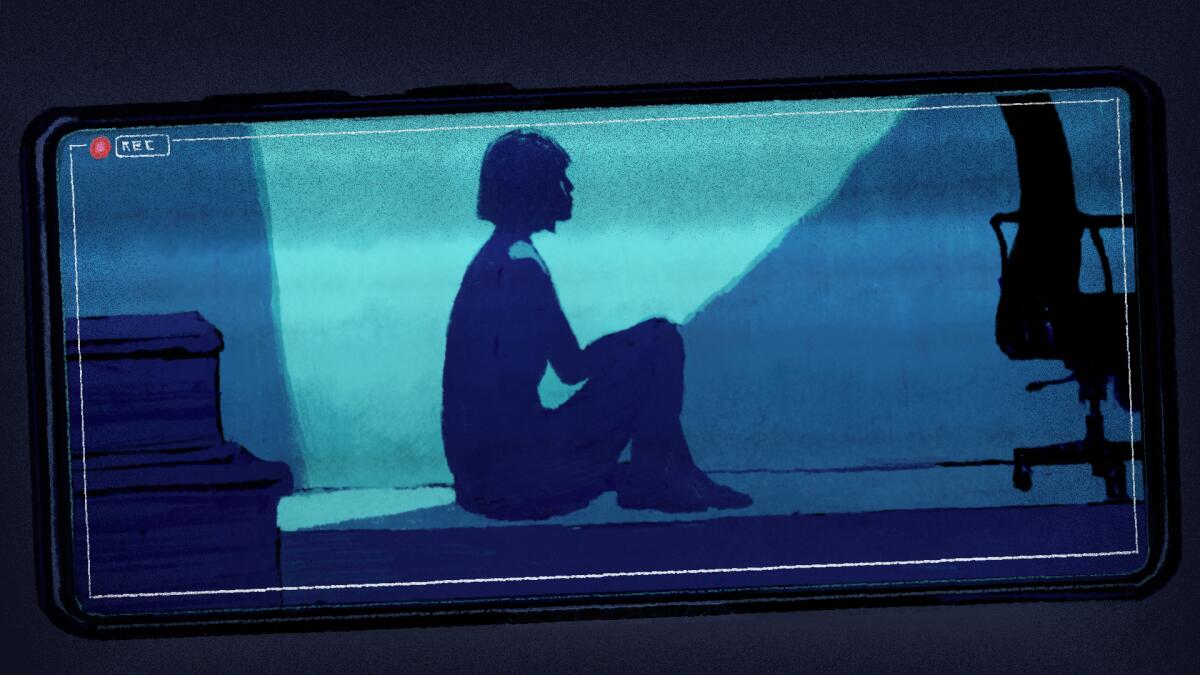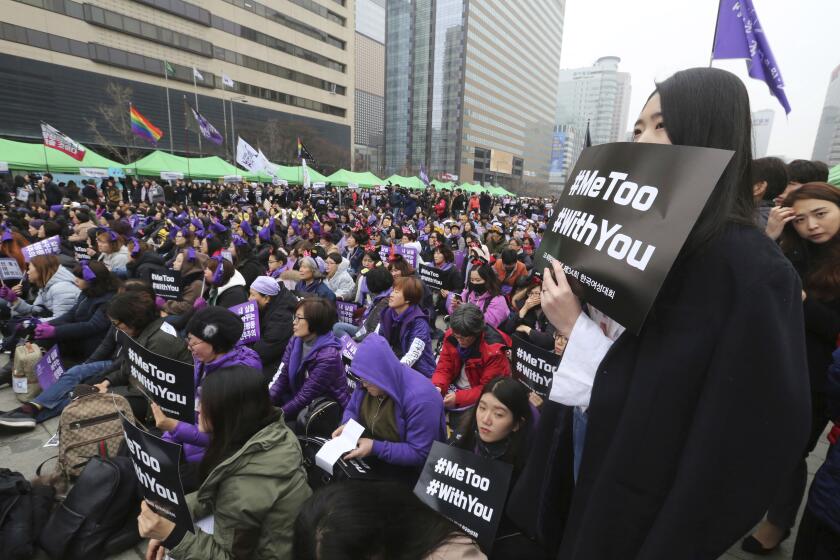Digital sex crimes can be ‘murder’ to South Korean women’s identity, report finds

On the streets of tech-savvy South Korea, the latest and most cutting-edge gadgets flash in people’s hands the instant they become available.
Less visible are miniature spy cams that in recent years have led to a reckoning over internet-based sex crimes that have devastated women’s lives, spurred scandals and ignited massive offline protests. The cameras lurk in clocks, clothes hooks, coffee cups and calculators, capturing women on the subway and in the bedroom.
Digital sex crimes involving secretly recorded or faked intimate images, distributed or sold without the subject’s consent, have driven women in South Korea to suicide, forced them to move overseas or left them with lifelong trauma, a leading human rights group found in a report released Wednesday.
Many victims received inadequate support from law enforcement or counseling services, even as cases against their perpetrators were often dropped or resulted in disproportionately light sentences, according to Human Rights Watch.
The 90-page report is an unsparing encapsulation of the reality underlying a series of digital sex crime scandals that have roiled the country in recent years, prompting soul-searching about deep-rooted sexism and setting off an unprecedented rise in feminist activism, and a fierce backlash to boot.
In 2018, tens of thousands of women marched in the street against spy cam recordings, rallying around the cry: “My life is not your porn.” In 2019, K-pop stars were disgraced and jailed after revelations they’d secretly recorded women and exchanged the clips. In 2020, the country learned of a “sextortion” ring that blackmailed women, many of them minors, into providing sexually explicit material that was sold in an anonymous chatroom that had as many as a quarter of a million subscribers.
“This issue has become more serious more quickly in Korea than anywhere else I can think of,” said Heather Barr, interim co-director of the Women’s Rights Division at Human Rights Watch who authored the report. South Korea, she said, offers “important lessons for the whole world.”
The pinching hand symbol has become a point of contention in a charged battle over gender and anti-feminist backlash by men’s rights groups.
The crimes highlight the double-edged nature of South Korea’s much-lauded technological prowess, boasting of some of the world’s fastest internet speeds and highest rates of smartphone usage. As the country has become more wired, crime involving spy cams increased more than thirteenfold from fewer than 600 in 2008 to more 7,730 by 2015. They have been on a downward trend in recent years with increased awareness and detection efforts, with 5,168 reported last year.
Even so, only 2% of the cases in 2017 resulted in prison sentences, according to the report. Last year, 4 out of 5 of those convicted received only suspended sentences or a fine.
One woman interviewed for the report was gifted a clock from her boss that she kept in her bedroom, only to later discover it was equipped with a hidden camera. Another’s former boyfriend photoshopped her face to semi-nude images of other women, and posted them online with her address and contact information. Yet another said she’d taken to sleeping in a tent inside her home after having been secretly recorded through a window, according to the report.
Propelling the crimes is an ingrained culture of inequality and sexist attitudes in which men cavalierly share illicit images among themselves. In a society steeped in a patriarchy that demands women remain “sexually pure,” victims are left with ongoing trauma, the rights group said.
“It’s like a murder, even though he didn’t use a knife or a weapon. It’s like a murder to someone’s identity or mentality,” one of the victims, who had strange men showing up at her home and work after her ex-boyfriend posted images of her, told Human Rights Watch.
As is the case in other countries, South Korea’s laws, institutions and norms have struggled against a fast-changing online landscape where cruelties exacted in cyberspace are infinite in geographical reach and probably never to be deleted from the internet.
“Once a nonconsensual image has been shared once, or the victim simply fears it might be shared, the fear of the image appearing or reappearing hangs over the survivor indefinitely,” the report’s authors wrote. “Any anonymous viewer can save, upload and distribute the screenshot on any website or websites — from which it may spread uncontrollably.”
A police detective cited in the report recounted one college student who dropped out of school and moved to the U.S. after a video of her having sex with a boyfriend spread online. But she was recognized by Koreans in her new home. She had plastic surgery to change her appearance, yet even then was unable live a normal life, according to the report.
In what amounts to a tech version of a whack-a-mole game, victims described searching for illicit images of themselves online to collect as evidence and submitting individual requests at each website for them to be taken down.
“I got one deleted and 10 more posts” would show up, one woman told the group.
After last year’s sextortion scandal, legislators passed a law increasing punishments for possession of nonconsensual images, and holding service providers responsible for monitoring and deleting illicit material.
Whether the law will result in a reduction of online sex crimes remains to be seen. In recent months, a high school teacher, an air force staff sergeant and a McDonald’s employee have each been caught on suspicion of secretly recording women.
More to Read
Start your day right
Sign up for Essential California for news, features and recommendations from the L.A. Times and beyond in your inbox six days a week.
You may occasionally receive promotional content from the Los Angeles Times.








